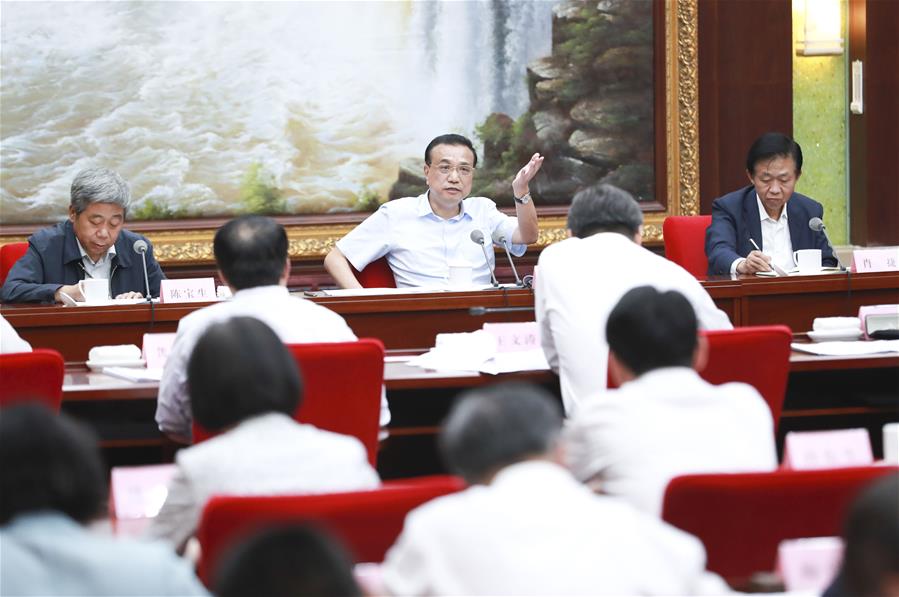Chinese premier stresses stabilizing employment
Chinese Premier Li Keqiang on Monday stressed the importance of stabilizing employment while presiding over a symposium in Harbin, capital city of northeast China's Heilongjiang Province.
Chinese Premier Li Keqiang on Monday stressed the importance of stabilizing employment while presiding over a symposium in Harbin, capital city of northeast China's Heilongjiang Province.

Chinese Premier Li Keqiang, also a member of the Standing Committee of the Political Bureau of the Communist Party of China (CPC) Central Committee, presides over a symposium on stabilizing employment in Harbin, capital of northeast China's Heilongjiang Province, Aug. 19, 2019. [Photo/Xinhua]
Employment is pivotal to people's wellbeing. Governments should realize the arduousness of job creation and put stable employment at a more prominent position, Li said.
A total of 8.67 million new urban jobs were created during the first seven months of the year, he said, calling it a hard-earned achievement.
The premier called for attention to the fact that the surveyed urban unemployment rate rose in July.
Every year, about 15 million urban people pour into the job market and 3 million rural workers try to find jobs in cities, he said.
Local governments should give high priority to employment and implement an employment-first policy, striving to achieve fuller employment and promote high-quality economic development, Li said.
He urged efforts to help labor-intensive enterprises and those faced with temporary difficulties pull through, and put tax and fee reduction policies in place to ease financing difficulties for private, small- and micro-sized companies.
Great efforts should be made to expand demand, improve the business environment and raise the vitality of companies to generate more jobs, he said.
Li asked local authorities to promote entrepreneurship and vigorously develop modern service industries such as old-age care, baby nursing and health to unleash their huge potential for job creation.
He also underlined vocational training, adding that the country's more than 2,000 technical schools should expand enrollment to ease structural imbalances in the labor market.

